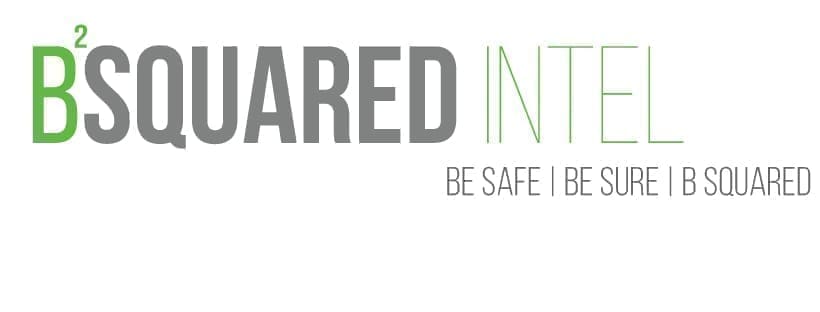Here are eight ways you can improve your privacy if you’re concerned about others snooping on your social media profiles, advertisers tracking you online, those going through your trash, those interested in your conversations or whereabouts, and protecting your files/devices.
1. Get your social media under control
Limit the amount of information you share. We’ve seen people post everything from drivers licenses, credit/debit cards (front and back), bank account numbers, passwords, and other sensitive stuff that can directly lead to identity theft. We’ve also witnessed people share seemingly innocuous information that can add up to something more sensitive that would eventually lead to identity theft, phishing attacks, SIM swap attacks, or flat out physical theft (don’t post when you’re away from home, where you are, and when you’re coming back)
Take advantage of all the privacy settings for any social media platforms you use.
2. Your web browser(s) need a privacy boost
When using a web browser, the following plugins/add-ons/extensions can help reduce the ability for third party advertisers and trackers from collecting data on you in order to sell it to interested buyers. To note, adblockers and various platforms that sell ads are in a constant game of cat and mouse. Adblocking extensions are great, but some digital platforms may find ways to bypass their effectiveness. With that being said, look for these extensions in your browsers’ web store:
- uBlock Origin (By Raymond Hill). This plugin is an adblocker.
- HTTPS Everywhere (eff.org. aka EFF, aka The Electronic Frontier Foundation). This plugin attempts to force a secure web connection between your device and a website you’re visiting if such a connection doesn’t exist.
- NoScript. This extension only allows executable content, such as javascript, to run on a web site that’s from a trusted source. This plugin takes a little getting used to, but it’s well worth it.
- Disconnect (By Disconnect), DuckDuckGo Privacy Essentials(By DuckDuckGo, or EFF’s Privacy Badger(By EFF technologists). These plugins do their best to block third part trackers from collecting your data as you browse. The feature set may be different for each of these extensions, but they set out to accomplish the same goal.
3. Your trash may be valuable to someone else
Shred paper documents, expired IDs, expired credit/debit cards, and CDs/DVDs(if you still use them to store data). Invest in a cross-cut shredder, which shreds things into tiny pieces, which makes it difficult for someone to piece together.
4. Disable geolocation/geotagging on your devices, applications, and web browsers
If you are in a situation where you don’t want someone to know where you are, disable these features ASAP.
5. Ditch Google as your search engine of choice
Google tracks your search terms in order to advertise to you. There are alternatives such as DuckDuckGo and Qwant.
6. People search engines are a privacy suck
Remove what information you can from people search engines like Spokeo, Pipl, TruePeopleSearch, and dozens more. The accuracy of data they collect about you varies from platform to platform, but they typically include your name, current and previous addresses, phone number(s), people associated with you and more. These platforms collect your data from various publicly available sources. Some of these sites make it easy to remove this information, some make you jump through several hoops, and some take it even further by what amounts to extorting you to get your information removed. And a heads up about these sites, new people search engines pop up frequently, so it’s a never ending game of whack-a-mole. On top of that, if you do get your data successfully removed, it can get back onto these sites if you experience a major life event such as moving, getting married, getting divorced, or getting a new job.
To get you started on removing things visit https://www.techlicious.com/tip/remove-yourself-spokeo-intelius-peoplesmart-mylife/
7. Use encrypted messaging apps
If you need to securely communicate with someone encrypted messaging apps offer various functions like encrypted text messages, which you can typically set a destruction date. These apps may also offer encrypted phone calls and encrypted video chat. Here are a couple of apps to get you started exploring encrypted messaging apps:
- Signal (Free. iOS and Android)
- Threema (Not free. iOS and Android)
8. Encrypt your files and devices
While we’re on the topic of encryption, encrypting your files (this also includes your backups) will help prevent someone from being able to access and read the contents should files, your workstation, tablet, or phone get lost or stolen.
For laptops/desktops, depending on the operating system, you have:
- Bitlocker for Microsoft Windows
- FileVault for Apple
- dm_crypt for Linux
For mobile devices, check your settings, typically under security, for encryption.
This is just the tip of the iceberg as far as things you can do to reclaim some control of your privacy.
What did we miss? What privacy tips or tools do you use? Let us know in the contact form below.
Contact Us | Bsquared Intel
Please fill out the form below, or call 203.828.0012, to learn how bsquared intel can assist you.

